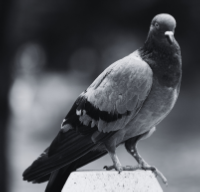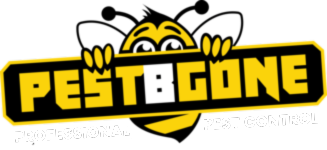Pestbgone Limited
The Mews, Hounds Road,
Chipping Sodbury, Bristol GL8 8UL
Buckinghamshire -
Office: 01628 473062
Onsite: 07728 314363
South Gloucestershire -
Office: 07585 124939
Onsite: 07585 124939
Our Services
Registered in England and Wales.
Company No: 13370531
VAT No: 364671477
Registered Address: The Mews, Hounds Road, Chipping Sodbury, Bristol, South Gloucestershire GL8 8UL
All Rights Reserved © 2025 Pestbgone Ltd






Our Services
Birds
Problems arising from Bird Infestation
Diseases: Firmly established as vermin, birds, through their droppings, have the ability to spread a number of different diseases which includes (but is not limited to) salmonella and ornithosis. Any bird related disease would be a risk to staff, and potentially effect staff attendance and performance.
Aesthetics /Reputation: Particularly applicable to feral pigeons and the negative association relating to any infestation. A company’s reputation could suffer if a bird problem is left untreated.
Insect Carriers: Birds are perfect in aiding the transporting of insects; such as fleas, ticks, lice and bird mites from nests and roosting places. This then has a possibility of secondary pest infestations that will require treatment, and therefore increase site costs.
Damage: Due to the acidic nature of bird droppings, serious and permanent damage may occur to the substrate of buildings. Whether it is rooftops, walkways or elevations, the strong salt and ammonia content can result in bird droppings being corrosive, and have the ability to hasten rust. In extreme circumstances droppings can lead to structural damage.
Killing songbirds in your garden: Corvids, which include magpies, jays, crows a jackdaws can often kill/eat the nesting songbirds birds in your garden which can be very upsetting and require the corvid population to be removed.
Bird Control Options
Bird control is bespoke for each situation. With over 18 years experience, PestBGone will carry out a specific site survey and advise the best solution for your requirements depending on the level of your infestation.
Upstand (Spike Systems): Steel spikes will be installed which ensure birds cannot rest on rooftops or ledges. Upstands are a versatile solution which can be employed in almost any situation and should be considered for low level infestations or small areas.
Netting: Durable, almost invisible netting, which completely prohibits birds from entering specific areas and provides a total solution for the specific area.
Spring Wire: Long-
Optical Gel: Small dishes installed onto ledges which prevent the bird from landing as they view the disks as fire. Completely invisible from ground level. This works as birds see in ultra violet and the gel gives an effect so that the birds think there is a fire and will not land. (Generally requires replacement every two years).
Bird of Prey Visits: Routine visits using a Harris Hawk designed to alter the flight path of nesting birds. Effective long-
Bird Guano Clearance: Full hygiene clearance to remove bird excrement waste as well as a thorough biocide (disinfectant) treatment of the area to remove all risk of disease.
Trapping: Trapping of pigeons is often perceived as the most humane method of removal. The birds are enticed to feed and enter open traps for a few days after which the traps are set and the birds are trapped and humanely dispatched. This can be very effective as the traps are working even when no one is on site. The other type of trapping Pestbgone can carry out is decoy trapping, this involves enticing the corvids into the live catch trap so they can be humanely removed from your garden.
Culling: Culling can control bird infestations, but only if adopted on a continual basis. The preferred and most cost-
WikiPest
Everything you need to know about
Birds

We’re here to help -
Buckinghamshire & South East
South Gloucestershire & South West
